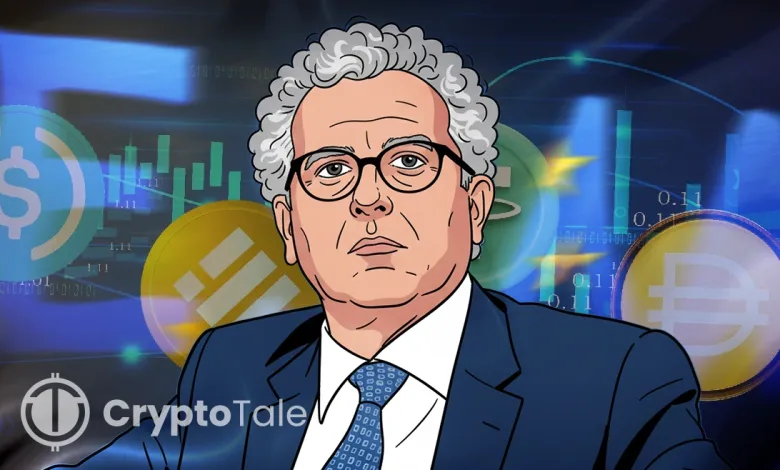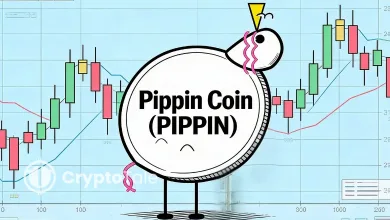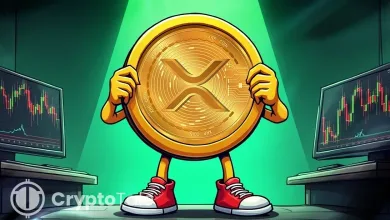ESM Chief Warns Unchecked Stablecoins Threaten Global Finance

- Prierre says that unregulated stablecoins can shake financial stability if not supervised.
- Europe risks losing digital control as 99 percent of stablecoins link to the US dollar.
- The EU is urged to back euro stablecoins to balance innovation with financial security.
Pierre Gramegna, Managing Director of the European Stability Mechanism (ESM), warned that unregulated stablecoins could pose a global financial threat if left unchecked. Speaking in Washington, he said stablecoins must have the same level of protection as central bank money to prevent instability across the financial system. According to Bloomberg, Gramegna urged global regulators to act swiftly before these digital assets expand without oversight.
He explained that stablecoins without credible guarantees or supervision could trigger financial contagion during crises. His comments came amid rising global concern over the unchecked growth of digital tokens pegged to fiat currencies. Gramegna clarified he was not opposed to stablecoins but stressed that they must operate within strong, transparent rules to safeguard consumers and institutions.
Call for Oversight and European Action
Gramegna told attendees at a Washington hearing that stablecoins must integrate safely into the monetary system to protect stability. He said they should function under frameworks similar to those of traditional financial institutions to prevent market shocks. Without such standards, stablecoins could easily become a source of systemic risk.
He cautioned that Europe must not depend solely on the U.S. dollar–denominated stablecoins, which dominate nearly 99 percent of the market. “Europe should not be dependent on U.S. dollar-denominated stablecoins, which are currently dominating markets,” he said during a Eurogroup session on economic health and digital assets.
Gramegna encouraged Europe to facilitate euro-denominated stablecoins through domestic issuers. He added that stablecoins are “an inevitable part of this equation” and said Europe should “embrace financial innovation with stablecoins and tokenized assets.” He proposed that Europe should build a digital system where cash, central bank digital currencies, and stablecoins can coexist in balance.
Growing Institutional Concern and Regulation
Paschal Donohoe, Eurogroup President, supported the need for innovation but said a digital euro could still benefit commerce across the bloc. EU officials collectively agreed that euro-backed stablecoins were necessary to counter the dominance of dollar-linked tokens, which gained traction under the U.S. GENIUS regulatory framework.
Gramegna’s caution also aligns with general warnings issued by institutions. The International Monetary Fund has recently indicated that the stablecoin market, valued at $305 billion, could interfere with monetary policies and credit systems. The Bank for International Settlements, for instance, has also cited the possibility of instability if stablecoins were to grow without stringent regulations, thus highlighting risks to national sovereignty and capital transparency.
Stablecoins, which maintain their value by being linked to assets such as the U.S. dollar or government bonds, are considered safer than volatile cryptocurrencies. Yet regulators fear their rapid growth could magnify systemic risks if major issuers fail.
In response, the European Union introduced the Markets in Crypto-Assets (MiCA) framework. It sets liquidity and capital requirements for issuers and requires large projects to undergo stress testing. Under MiCA, several European banks are already planning euro-backed stablecoins compliant with EU law.
Related: Polygon’s Blockchain Evolution: Stablecoins, AI Integration, and Future-Proof Utility
Can Europe Reclaim Its Digital Sovereignty?
Gramegna’s comments not only express concerns but also aim to secure Europe’s digital future as the leading continent in the West. “Europe should not allow the digital payments network to be controlled by non-European companies,” he argued. His pitch to the EU has both competitiveness and trust as well as healing the skillful financial system.




